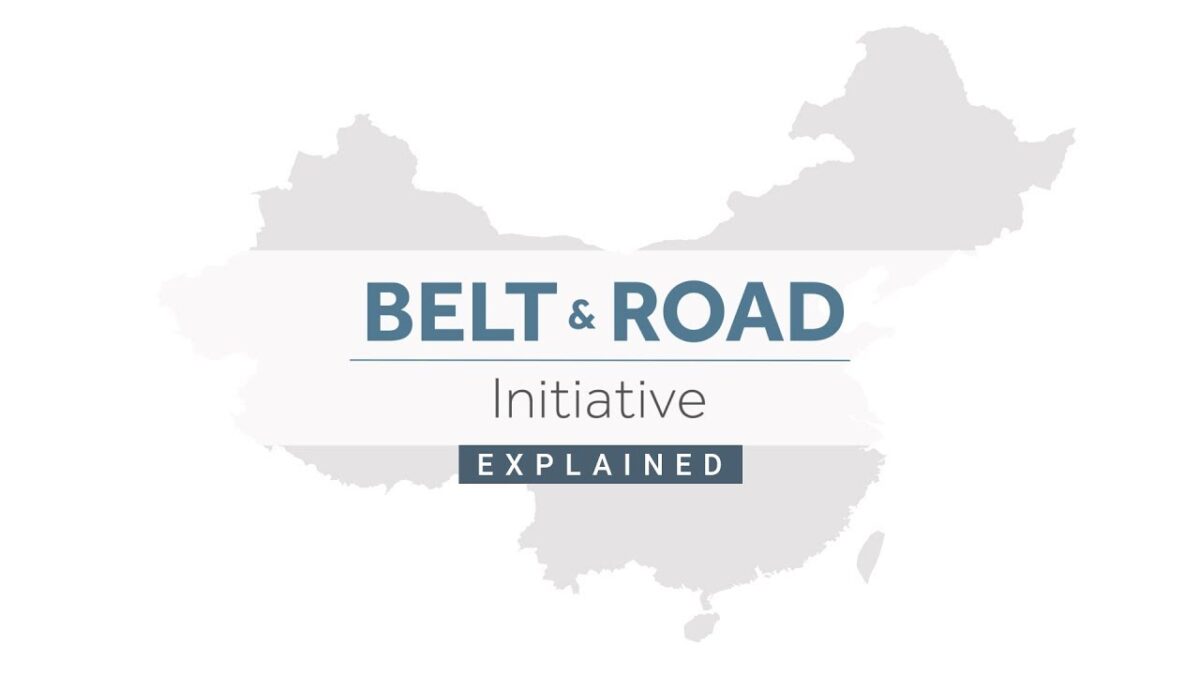Introduction
China’s Belt and Road Initiative (BRI) stands as one of the most ambitious infrastructure and economic development projects in modern history. Encompassing over 70 countries across Asia, Africa, Europe, and Oceania, the BRI aims to enhance connectivity, trade, and economic cooperation through a network of roads, railways, ports, and pipelines. However, beyond its infrastructure goals, the BRI carries significant implications for global geopolitics, stirring both admiration and concern among nations worldwide.

Infrastructure Development: A Tool for Geopolitical Influence
At its core, the BRI serves as a vehicle for China to extend its influence beyond its borders. By investing in infrastructure projects, China gains leverage and fosters economic dependence among participating nations. This strategic maneuver allows Beijing to shape the geopolitical landscape in its favor.
Expansion of Chinese Economic Dominance
One of the primary implications of the BRI is the expansion of Chinese economic dominance. Through investments in infrastructure and development projects, China gains access to key markets and resources, bolstering its economic power on a global scale. This growing influence challenges the traditional economic hegemony of Western powers and reshapes the dynamics of international trade.
Debt Diplomacy and Strategic Leverage
Critics often raise concerns about China’s use of debt diplomacy within the framework of the BRI. By providing loans for infrastructure projects to participating countries, China creates a form of strategic leverage. In cases where countries are unable to repay these loans, China may exert pressure or gain control over critical assets, effectively expanding its geopolitical influence.

Geopolitical Competition and Regional Dynamics
The BRI fuels geopolitical competition as countries vie for influence and access to resources in strategically significant regions. This competition is particularly evident in areas such as the South China Sea and Central Asia, where competing interests clash, leading to tensions and diplomatic disputes. The BRI amplifies these dynamics by intensifying competition for control over key trade routes and infrastructure networks.
Security Concerns and Strategic Implications
Security concerns accompany the expansion of the BRI, especially in regions plagued by instability and conflict. The construction of infrastructure projects in these areas may exacerbate existing tensions or introduce new security challenges. Additionally, the BRI’s emphasis on connectivity raises questions about cybersecurity and the vulnerability of critical infrastructure to cyber attacks, posing risks to global stability.
Alignment with China’s Geopolitical Objectives
The BRI aligns with China’s broader geopolitical objectives, including the pursuit of regional hegemony and the projection of soft power. By positioning itself as a champion of economic development and connectivity, China seeks to enhance its image as a responsible global leader while advancing its strategic interests.
Challenges to Western Hegemony
The BRI represents a challenge to Western hegemony, particularly in regions where Western influence has traditionally been strong. As China increases its economic presence through infrastructure investments, it undermines the dominance of Western-led institutions and initiatives, such as the World Bank and the International Monetary Fund. This shift in power dynamics has significant implications for the balance of global governance.
Diversification of Economic Partnerships
For participating countries, the BRI offers opportunities to diversify their economic partnerships and reduce dependence on traditional allies. By engaging with China through infrastructure projects and trade agreements, countries can access new markets and investment opportunities, potentially enhancing their economic growth and development.

Conclusion
China’s Belt and Road Initiative represents a paradigm shift in global geopolitics, with far-reaching implications for both participating countries and the broader international community. While the BRI offers opportunities for economic development and connectivity, it also raises concerns about debt diplomacy, security risks, and the erosion of Western influence. As the initiative continues to unfold, its impact on global geopolitics will remain a subject of intense scrutiny and debate.




4 Comments
This asset is phenomenal. The wonderful information exhibits the proprietor’s earnestness. I’m stunned and anticipate more such mind blowing entries.
This site is fabulous. The radiant material shows the publisher’s enthusiasm. I’m dumbfounded and envision more such mind blowing substance.
Hi my loved one! I wish to say that this post is amazing, nice written and include approximately all vital infos. I’d like to peer more posts like this.
What i do not understood is in truth how you are not actually a lot more smartly-liked than you may be now. You are very intelligent. You realize therefore significantly in the case of this topic, produced me individually imagine it from numerous numerous angles. Its like men and women don’t seem to be fascinated until it is one thing to do with Woman gaga! Your own stuffs nice. All the time care for it up!